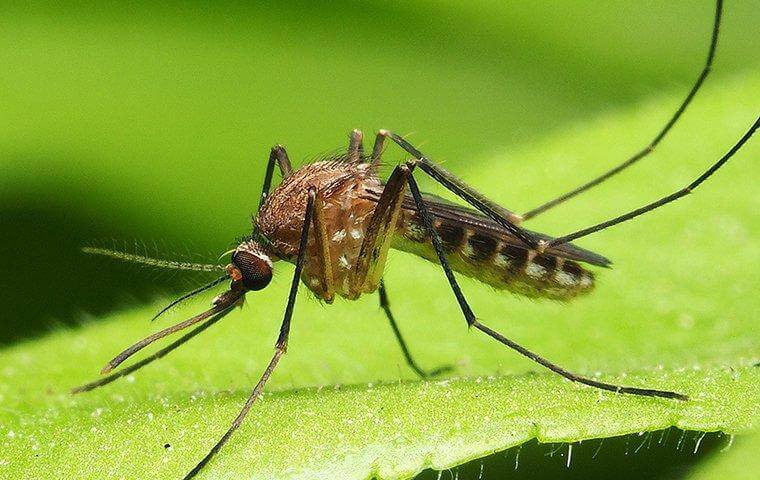
Spring is fast approaching which means summer pests like mosquitoes are on the way, and in many parts of the country, they’re already here. Between their annoying buzzing, itchy and painful bites, and the potential diseases they spread, mosquitoes cause a lot of problems for residents throughout the country.
Unfortunately, mosquitoes are a notoriously difficult pest to eliminate once they infest a property, making prevention a necessity. If you haven’t taken steps to protect your yard from mosquitoes this summer, there’s no better time than now to start. Here are some essential tips you should follow to help:
Remove Standing Water
Mosquitoes spend almost half of their lives in water, needing it to breed as well as to hide, which is why the single most important step any homeowner should take to curb mosquitoes around the yard is to eliminate sources of standing water. Mosquitoes don’t travel very far from where they’re born, so preventing breeding pools around your yard can go a long way toward long-term mosquito prevention.
Standing water in your yard could take many forms. Some water is artificial or decorative such as a pool, fountain, or birdbath. Other sources of standing water are natural such as ponds or lakes. Low spots on the lawn can also collect rainwater after a storm that could later become a mosquito breeding pool. Keep in mind that even if the pool cover is on, water can still collect on top of it and create mosquito harborage sports.
Take steps to eliminate these sources of standing water wherever possible. Keep pool pumps running and fountains flowing, and mow the lawn regularly to reduce the amount of moisture that can collect in the grass.
Check your gutters to ensure they’re flowing properly. Water that accumulates near broken or obstructed gutters can give mosquitoes everything they need to create a breeding site. Likewise, fill in low spots around the yard so that rainwater soaks into the lawn evenly instead of puddling up in specific areas.
Clean Up Outdoor Debris
Water can accumulate in children's toys, old tires, trash piles, and other clutter around your yard, so keep it clean where possible.
Remove open containers left around your yard. These will collect rainwater over time that can create breeding pools if left unchecked. Children’s swing sets and play areas can also accumulate water over time, so check them regularly for places where water collects.
Plants
Certain plants collect more water than others. Consider the type of plants you’re growing around your yard. Non-native plants generally require more water to survive, and they can even import mosquitoes into new habitats. Native plants, on the other hand, will thrive without producing an environment ripe for mosquito growth.
Look into plants with natural mosquito-repelling qualities. Certain plants such as citronella, pennyroyal, basil, lemongrass, and catnip act as natural mosquito deterrents, so consider planting some around the proximity of your yard.
Mosquito-Eating Species
Certain fish species are natural predators to mosquitoes when they share the same bodies of water. Consider adding bluegills, minnows, or green sunfish to ponds or fountains in your yard to act as a natural defense to stop the buildup of mosquito eggs.
Outdoor Lighting
Mosquitoes are more attracted to certain kinds of lights than others. White incandescent lights are generally more attractive to mosquitoes, so consider changing your outdoor lighting to yellow lamps to avoid bringing mosquitoes closer to your home.
Ironically, bug zappers around your yard can attract mosquitoes, especially at night. Turn bug zappers off at night or when the yard is vacant to avoid inadvertently attracting mosquitoes to the light they emit.
Professional Help For Mosquito Control
Unfortunately, mosquitoes are practically impossible for homeowners to eliminate from their yards alone. If you want to diminish the presence of mosquitoes in your yard, your only realistic option is to contact a professional pest control provider for help.
Pestmaster® Services offers several treatment options to control mosquitoes around your property. We use proven techniques including backpack misting, traps, misting systems, ULV fogging, larvicides, growth regulators, biological controls, and more. And because of our Integrated Pest Management approach to mosquito control, we can ensure the safe and effective elimination of any mosquitoes on your property without harming the surrounding ecosystem.
When the weather warms up, if mosquitoes start turning summer days into a nightmare, don’t wait: contact the professionals at Pestmaster® Services for expert help and take back your yard.
.png)
